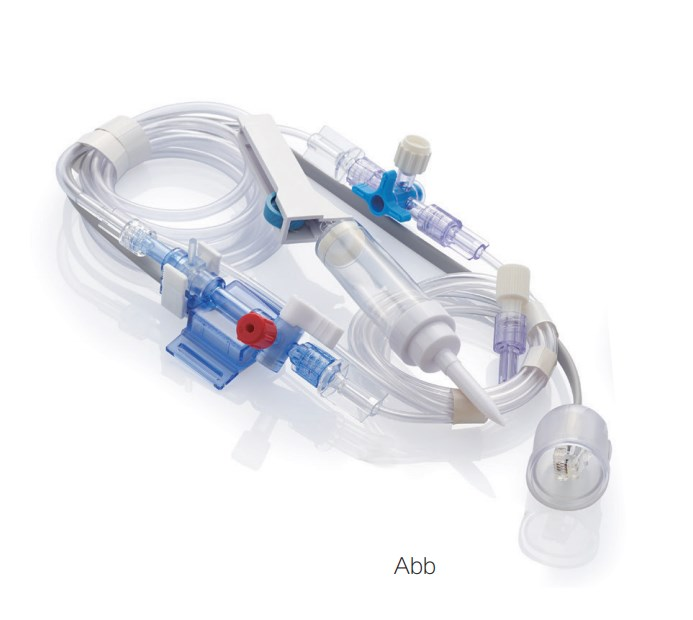We'd Love to Hear From You
Curious about product features, price quote, registration, delivery time, etc? We're ready to answer any and all questions within one business day.
In critical care settings, monitoring a patient's cardiovascular system is not just a necessity—it's a lifeline. The technology that facilitates this monitoring, particularly disposable Invasive Blood Pressure (IBP) transducers, plays an increasingly central role in ensuring patient safety and healthcare efficiency. At SCW Medicath, we recognize how indispensable these devices are to modern medicine, as they enable continuous, accurate blood pressure measurements in real-time. But beyond the technical specifications, the disposable IBP transducer represents a convergence of safety, cost-effectiveness, and streamlined patient care in today's fast-paced medical environments.

Understanding Disposable IBP Transducers
An IBP transducer is a medical instrument used to measure pressures inside the body—most commonly, the arterial, venous, or intracranial pressures. These measurements are crucial in understanding a patient's cardiovascular health, particularly in high-acuity settings like Intensive Care Units (ICU), operating rooms, and emergency departments. By translating mechanical pressure into a readable digital output, the transducer provides healthcare providers with immediate, actionable data that helps guide clinical decision-making.
What sets disposable IBP transducers apart from traditional reusable models is their one-time use design, which has profound implications for both patient care and hospital operations. When clinicians rely on disposable transducers, they can ensure accurate pressure measurements without the risks associated with reprocessing and reuse, which can compromise quality and safety.
The Importance of Disposable IBP Transducers in Modern Healthcare
The shift toward disposable IBP transducers is not just a trend—it's a strategic choice that enhances patient safety, reduces operational complexity, and improves overall cost-efficiency in healthcare systems. These devices are essential in environments where quick, accurate decision-making is crucial to patient survival, such as in the ICU or emergency settings. By providing reliable blood pressure measurements that help clinicians make informed decisions, disposable IBP transducers represent a key advancement in medical technology.
Reducing Infection Risks and Enhancing Patient Safety
Invasive medical devices, especially those used for pressure monitoring, carry inherent risks of infection if not properly managed. Disposable IBP transducers mitigate this concern by eliminating the need for sterilization between patients. Each transducer is used once and then safely discarded, greatly reducing the chances of cross-contamination. This is especially crucial in environments where patients are critically ill and highly susceptible to infections, such as in intensive care or post-surgery recovery units.
Streamlining Hospital Resources and Improving Cost Efficiency
Although disposable transducers may seem more costly at first glance, their overall impact on hospital finances can be surprisingly positive. Reusable devices require ongoing sterilization and maintenance, both of which incur labor and material costs. Disposable transducers, on the other hand, are designed for single use, reducing the need for costly cleaning procedures. Additionally, by cutting down on hospital-acquired infections, which can lead to longer hospital stays and more intensive treatments, disposable transducers help keep overall healthcare costs in check.
Enabling Real-Time Monitoring for Rapid Clinical Response
For clinicians, the ability to make quick, informed decisions based on real-time data is critical, particularly in emergency or life-threatening situations. Disposable IBP transducers excel in this regard by providing continuous, accurate blood pressure readings that are immediately available for interpretation. This capability is especially beneficial in settings like the ICU, where even slight changes in pressure can signal the need for urgent intervention. With real-time data, healthcare providers can initiate the appropriate treatment without delay, improving patient outcomes.
Simplifying Workflow and Enhancing Operational Efficiency
For healthcare teams, time is of the essence, and disposable IBP transducers simplify the workflow significantly. These devices don't require the lengthy reprocessing associated with reusable models, meaning that clinical staff can focus on delivering care rather than managing equipment maintenance. Their ease of use further improves workflow efficiency, as there is no need for specialized training or complex setup processes. This not only saves time but also reduces the likelihood of human error, ensuring more consistent and reliable results.
Ensuring Accuracy and Consistency in Patient Monitoring
One of the primary advantages of disposable IBP transducers is their inherent reliability. Since they are single-use devices, they are less likely to suffer from wear and tear or calibration issues that can affect reusable equipment. Each transducer is calibrated for optimal performance right out of the box, ensuring that clinicians receive precise and trustworthy data every time. This consistency is especially important in critical care, where the slightest deviation in readings can lead to inappropriate treatment decisions.
Conclusion
As healthcare systems worldwide strive for greater efficiency, safety, and cost-effectiveness, disposable IBP transducers have become a vital tool in patient monitoring. Their ability to provide accurate, real-time blood pressure data while eliminating the risk of cross-contamination has made them indispensable in modern healthcare practices. By enhancing patient safety, reducing operational costs, and improving clinical outcomes, disposable IBP transducers are not just a trend—they represent a fundamental shift in how healthcare is delivered in high-stakes environments. As medical technology continues to evolve, these devices will undoubtedly play an even greater role in shaping the future of patient care.